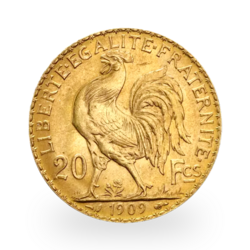Gradually, the myth of infinite growth is dying out. China is discovering that the continuous and harmful accumulation of debt will eventually pay off because debt has a procyclical effect, the countries of the Middle East and Russia (among others) understand their dependence on a naturally limited resource, and the West is realizing that the consequences of a hyper-financialized economy can be dramatic.
A World That is Changing
As the war in Ukraine rages, some countries are strengthening their ties with Moscow: the Xi Jinping government is the most illustrious example with a dramatic increase in Chinese imports from Russia, but so is India, a member of the Shanghai Cooperation Organization with Russia since 2017, and Turkey, which plays a permanent dual role despite its membership in NATO.
As a new world is being created, relationships are being torn apart and new bonds are being created. On October 5, despite calls for an increase in supply by the United States, the OPEC countries (of which Saudi Arabia and Russia are the protagonists) jointly decided to reduce their oil production in order to keep the price per barrel high enough and thus try to weaken, by exerting inflationary pressure, the American Democrats one month before the midterm elections.
If in this period, the Russian choice is not surprising, the choice of Saudi Arabia marks a new shift that calls into question the historic partnership signed between the United States and Saudi Arabia in 1945, especially since the Biden administration is studying the implementation of new legislation to punish the Gulf monarchy. The continuation of such a scenario will inevitably accentuate Riyadh's rapprochement with new allies, particularly those in the East, unless the House of Representatives falls into the hands of the Republicans during the elections on November 8.
While American foreign policy divides Democrats and Republicans, some issues unite them, including protectionist policy towards China.
In this respect, the technological war between the two great powers to dominate the "economy of tomorrow" took a new turn on October 11: The new American protectionist rules have profoundly hindered the development of semiconductors in China, especially the most sophisticated chips needed for the military and artificial intelligence sectors.
This decision appears to be a new blow for President Xi Jinping - now re-elected as head of the country - who has made technological leadership the growth driver of his country's very fragile economic model.
At the same time, while the Middle Kingdom is proceeding with several currency devaluations to support its economy in the face of the real estate crisis, the United States is continuing to raise interest rates in an attempt to curb inflation and attract foreign capital. In addition to its role as a safe haven, the dollar is thus reinforcing its hegemonic status at a time when it is being challenged more than ever.
Europe Faces its Destiny
In this pivotal period of history, the Old Continent is in deep trouble.
At the time of the 30th anniversary of the Maastricht Treaty, the situation is clear: permanent and inept alignment with the United States continues to prevail, European federalism remains a pious hope, and the treaties are unchanged despite the singularity of the current period. Not surprisingly, all of Europe's weaknesses become apparent when a conflict involves most of the world's powers. The most important of these, energy dependence on Russia, profoundly affects Europe's balance of trade, its industry and the euro.
Faced with these umpteenth difficulties, should we continue to believe in the European project?
Maintaining the status quo would lead to an increasingly sharp division between European nations: a scenario dreamed of and supported by the United States since the project was built.
The choice of dissolution, on the other hand, would be a godsend for the great foreign powers, first and foremost Russia, and of course China, for whom trade would be strengthened.
The only alternative is for Europe to take a great federal leap, to finally assert itself as a superpower, to decide on a profound reform of its institutions and treaties, to establish budgetary and fiscal harmony, to adopt a long-term vision in which democracy is at the heart of the European identity, and to create the conditions so that the development of some is not possible without that of others. But such an outcome requires first of all, that all European countries understand that such a project is desirable for all, because the continuation of the current Europe inevitably leads to its self-destruction.
An Empire in Decline
If the United Kingdom has made the choice to leave, the great ambitions displayed in 2016 by the conservative Euroskeptic wing remain for the time being, a dead letter. After six years of Brexit, the free trade agreement with the United States has not seen the light of day, the labour shortage has become a permanent fear, the famous Global Britain has not been realized (only a few trade contracts have been signed with Commonwealth countries), and political tensions in Scotland and Ireland have increased.
The former world leader is now in a major economic and political crisis. Despite the temporary intervention of the British central bank in early October to save some pension funds, the country remains under the imminent threat of a financial crash, a Lehman moment. Ironically, the British Treasury recently announced the transfer of 11 billion pounds to the central bank to cover its losses. A phenomenon that is difficult to understand by logic... enough to fuel new debates about the independence of central banks.
But above all, these events reflect the limits of capitalism as it has developed since the Thatcher era. In this respect, by declaring that he could not "control the markets", former finance minister Jeremy Hunt has shown - today more than ever - to what extent democracy is disciplined by debt (to paraphrase the sociologist Benjamin Lemoine). Faced with the inability to implement her economic program, Liz Truss chose to resign. After only 44 days in office, she became the shortest-serving Prime Minister in the history of the United Kingdom... and left her successor, Rishi Sunak, with a decisive mandate, provided that the politician can still be considered the sole decision-maker.
Reproduction, in whole or in part, is authorized as long as it includes all the text hyperlinks and a link back to the original source.
The information contained in this article is for information purposes only and does not constitute investment advice or a recommendation to buy or sell.

















